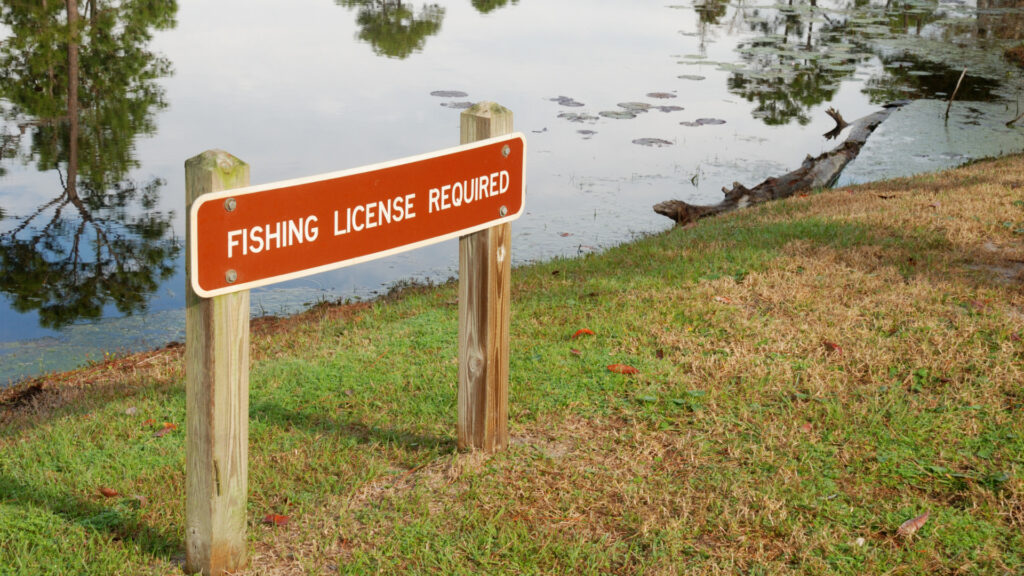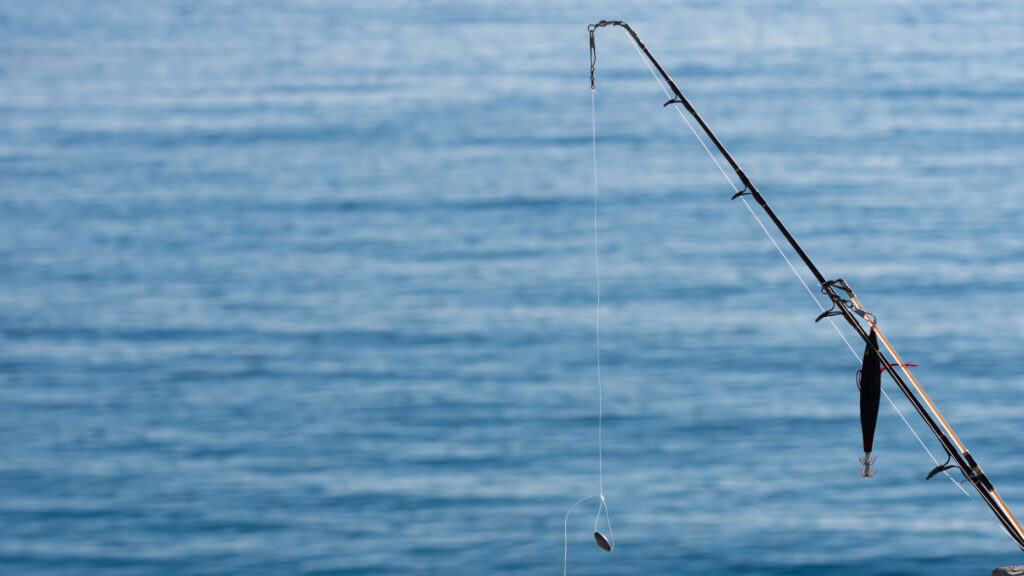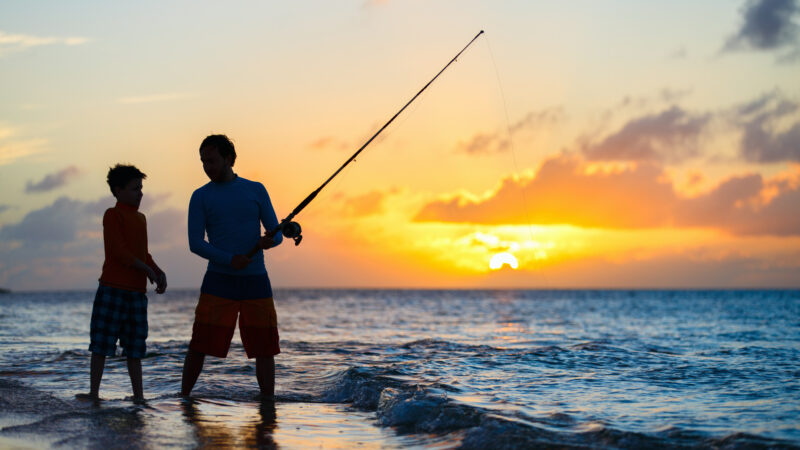Table of Contents Show
There’s more to do in the Sunshine State than visit theme parks and soak up the sun. Getting a fishing license in Florida unlocks a whole new world of possibilities.
The proper permit is essential, whether floating on a boat or standing on the shore. If not, you could end up in hot water with law enforcement.
Today, we’re looking at how to get a fishing license in Florida. Let’s get started so you can catch your next meal.
What Is a Fishing License?
A fishing license is a legal document issued to individuals by a governing authority for fishing in public waters.
The government helps manage and regulate activities in fresh and saltwater bodies of water. Because of fishing licenses, officials can protect aquatic populations, fund conservation efforts, and care for aquatic ecosystems.
Often, you must acquire a license for each state you plan to cast a line, and the terms and conditions vary based on location and the body of water. It is the angler’s responsibility to ensure they fulfill the legal requirements.

Who Needs a Fishing License in Florida?
The rules and regulations for who needs a fishing license in Florida can be tricky. However, licenses are required for anyone attempting to take a fish by casting a line. You need a license whether you plan to keep it or not. That might sound simple, but it gets tricky.
For starters, youth under 16 do not require a license. However, adults assisting or helping them must have one. The state defines assisting as casting, reeling, or baiting hooks. Doing any of these, even once, will require a permit.
Additionally, Florida residents over 65 do not require a license. Don’t overlook the words “Florida resident.” If you’re a tourist over the age of 65, you’ll still need to have a license.
The Sunshine State has both fresh and salter licenses. You’ll need a saltwater permit in the Atlantic Ocean or the Gulf of Mexico. This includes anyone trying to catch crabs, lobsters, and marine plants.
Because of the many possibilities and exemptions, you must know the rules and regulations specific to your situation. The Florida Fish and Wildlife Conservation Commission’s (FWC’s) FAQ section can be handy if you have any questions. When in doubt, contact an FWC office or officer.
Ignorance is not an excuse. If you get caught fishing without one, it can be a costly mistake. The first offense can cost you a $50 fine, and the second or third, within 36 months, costs $250. However, if caught in protected areas, the penalties can be much more severe.
Can You Fish in Florida Without a License?
As we mentioned earlier, there are several instances where you can fish in Florida without a license. Generally, those under 16, residents over 65, or with developmental disabilities are exempt. For a complete list of the exemptions, check out the FWC website.
It’s also important to remember that licenses are typically only necessary if fishing in public waters. Casting on private property generally does not require a license. However, Florida has some restrictions on the pond size and if the owner has purchased the necessary permit.
Another way to fish in Florida without a license is during the license-free fishing days. These days allow residents and non-residents to fish recreationally without a permit. The FWC hosts a handful of these days each year.

How Much Does a Fishing License Cost in Florida?
Costs for a fishing license in Florida depend on the license type and your residency. If you only plan to fish in freshwater, an annual pass costs $17 for residents and $47 for non-residents. Tourists who won’t need an entire year can purchase a pass for three days ($17) or seven days ($30).
Anyone planning to fish in saltwater must ensure they have the proper license. They cost the same as the freshwater licenses. However, residents can save a few bucks and purchase a combination license for both fresh and saltwater for $32.50. Unfortunately, this is not an option for non-residents.
The Sunshine State does have a free shoreline-only fishing license. This is only available for residents casting from land or a structure connected to the land.
You cannot fish from a boat or use a boat to access the spot. Again, this isn’t an option for non-residents, who must purchase a three-day, seven-day, or annual saltwater license.
How Do You Get a Fishing License in Florida?
Getting a fishing license in Florida is incredibly easy. If you test your luck and cast a line, fulfilling the legal requirements requires little effort. Let’s see what you must do to hit the water and reel in a big one.
Determine the Type of Fishing License You Need
One of the most challenging parts of the process is deciding which license you need. As we’ve shared, requirements depend on where and how you plan to fish. Buying the correct license can keep you on the right side of the law and save you money.
There’s no use paying for an annual license if you’re only in the state for a few days. In addition, consider the type of fishing you’ll be doing. It is up to you to familiarize yourself with FWC rules and regulations. The Florida Fish and Wildlife Conservation Commission website is the best resource for accurate and up-to-date information.
Keep in Mind: If you love to fish during your getaways, you need to check out these Travel Fishing Rods for Your Next Trip!
Purchase Online
Technology makes it easy for you to get your fishing license. You can visit GoOutdoorsFlorida.com, which will walk you through the entire process. It’s easy to use for both residents and non-residents.
You’ll be able to see each license and what it covers. Take your time and ensure you select the proper permit to avoid wasting time and money.

Visited Registered Retailers
While less convenient, you can still visit physical retailers to get your license. Use the search filters to locate the nearest retail agent to your location. You can filter the results based on the city or county. Many retailers are tax collector’s offices, bait and tackle shops, or large outdoor retailers, including Walmart.
One benefit of these locations is that you get to encounter an actual person. You can share your intentions with them, and they can help you stay legal. Unfortunately, this will require advanced planning as some locations have certain operating hours.
Pro Tip: Here’s How to Get a Walmart Fishing License!
Catch More Than Sun in Florida
You can catch more than sun rays in Florida, but only with the proper fishing license. Don’t ruin your trip by ending up on the wrong side of the law.
Consider the purchase as a donation to help support the state’s ongoing conservation efforts. When you look at it this way, it’s money well spent.






